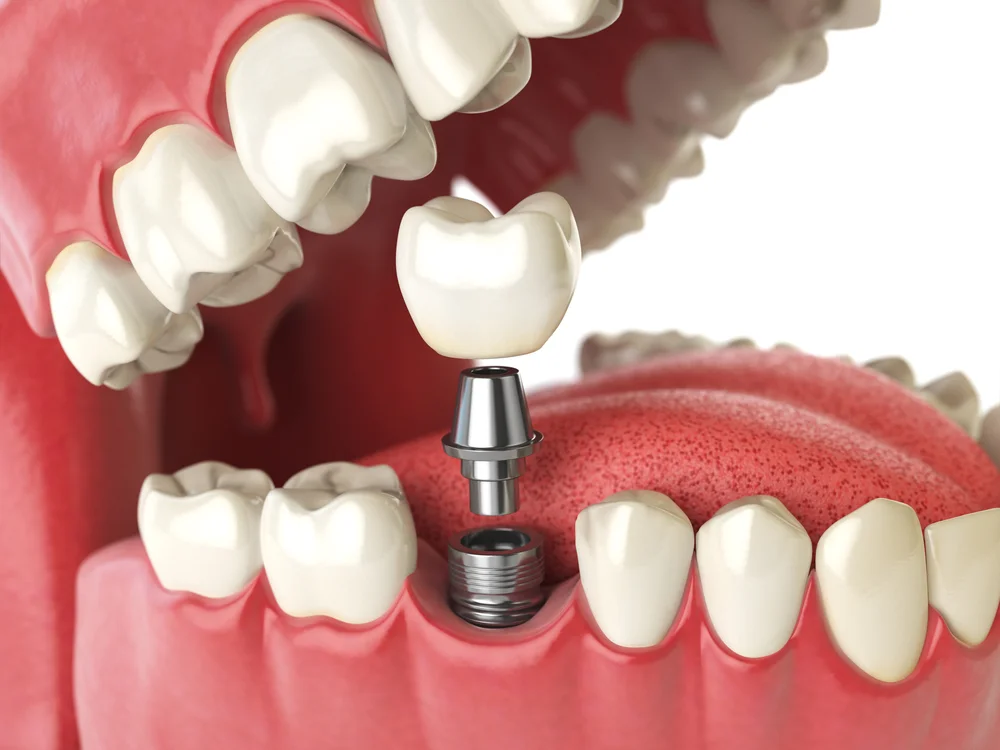Dental Implants: Function, Health & Aesthetics
Many people come to us looking for adjustments to their smile. From small tweaks to large changes, the reasons for corrections include cosmetics, dental health, injuries and many more. For some patients, dental implants hold the solution to their problem.
But how do implants work, and what are the benefits?
What are Dental Implants?
An implant begins with a surgical fixture – usually a strong metal such as titanium – that acts as a replacement for a tooth root. This fixture is inserted into the jawbone and provides a foundation for a replacement tooth. This procedure is very close to having a real replacement tooth, as the implant will remain stable and the tooth won’t slip or shift.
Function and Health
Standard dentures or bridges may not be ideal for all patients due to the shape of one’s mouth, the angle of the jawbone or because of sore spots. Dental implants are highly functional in that they can be applied in a completely natural way, slotting into the existing shape of one’s smile. People with successful implants experience minimal disruption to their speech and to their eating habits, able to continue as normal. The individual fixing of implants also means that other teeth do not have to be ground or prepared to make room for a bridge or a denture.
For those with misshaped or broken teeth, dental implants are a fantastic, long-term way of improving dental health. By reducing the breeding space for plaque and allowing maximum access when cleaning teeth, the uniform shape of dental implants can save you many potentially uncomfortable – and costly – visits to the dentist in the future!
Ensure that the materials used for your dental implants are of the highest quality.
Aesthetics
Dental implants are a fantastic choice for people looking to make cosmetic improvements to their teeth. Individual teeth can be treated, resulting in striking and immediate improvements to one’s bite, smile and confidence! When more teeth – or even an entire set of teeth – require treatment, the natural placing of implants ensures that there are no lengthy waits for teeth to realign and for gaps to close. Results are quick and clear to see.
Do Implants Hurt?
Implant surgery is usually performed under anaesthetic, meaning that there is no pain during the procedure. After surgery, patients may feel discomfort similar to that of having a tooth removed. This pain can usually be managed with standard pain relief available from pharmacies.
What's Involved?
Not all people are suited to dental implants. During a consultation, we will examine the following factors when deciding on the best course of treatment:
The patient’s dental health
Their health in general
The position of the tooth or teeth to be replaced
The strength and health of their jawbone
What they can afford
Once a person has dental implants fitted, it is vitally important that they continue to care for their implants as they would their own teeth – regular and thorough cleaning twice a day!
Are you interested in finding out more about whether implants are right for you? Book a consultation today – contact us by email or by calling 01534 759 599.

